Addressing Disproportionate Infant Mortality in Oklahoma
Cross Sector State Stakeholder Group
The principal applicant for Project HOPE in Oklahoma is the Oklahoma Partnership for School Readiness (OPSR), who leads the state in coordinating an early childhood system focused on strengthening families and school readiness for all children. The Oklahoma Partnership for School Readiness formed an Early Learning Equity and Diversity (E-LEaD) Team to work toward a more equitable system of early care and education. This team works to advance the vision that every child, regardless of race, ethnicity or family income, has the best opportunity to achieve optimal health and well-being.
This team will serve as the Cross Sector State Stakeholder Group for Project HOPE (Harnessing Opportunity for Positive, Equitable Early Childhood Development) in partnership with Nemours Children’s Health System.
Members of the E-LEaD team include:
- Debra Andersen, Executive Director, Oklahoma Partnership for School Readiness
- Dave Lopez, Oklahoma Corporate, Civic and Government Leader
- Marny Dunlap, M.D., Pediatrician, OU Children’s Physicians Latino Clinic
- Curtis Calvin, Vice President of Education and Outreach, Oklahoma Educational Television Authority (OETA)
- Persephone Starks, M.S., MIECHV Grant Coordinator, Oklahoma State Department of Health
- Alicia Salvatore, Assistant Professor, Department of Health Promotion Sciences, University of Oklahoma Health Sciences Center College of Public Health
- Sheameka Williams, Senior Director, Oklahoma Systems of Care, Oklahoma Department of Mental Health and Substance Abuse Services
- Shelly Patterson, Director, Community Relations, Oklahoma Health Care Authority
- Julian Guerrero, Executive Director of American Indian Education, Oklahoma State Department of Education
Debra Andersen ([email protected] ) is the primary point of contact for Project HOPE in Oklahoma.
Additionally, Oklahoma Partnership for School Readiness staff on this project include:
- Gabrielle Jacobi, Program Coordinator, Oklahoma Partnership for School Readiness [email protected]
- Katie Parker, Community Relations Specialist, Oklahoma Partnership for School Readiness [email protected]
- Chris Lee, Administrative Specialist, Oklahoma Partnership for School Readiness [email protected]
Equity Issue and Community of Focus
Infant mortality has been selected as Oklahoma’s issue of focus for Project HOPE, as it represents a measure of overall health of a community and is unfortunately an indicator in the state in which significant disparities exist. Infant mortality is a measure that can be compared across geographic, racial and income levels, and can serve as a compass to monitor the impact of a collaborative approach to improving infant health. Historically, improvements in community conditions, such as access to care in remote geographical regions, have demonstrated a positive impact in reducing infant mortality rates. Through Project HOPE, Oklahoma will focus on infant mortality to help understand how barriers, discrimination and a lack of access impact this indicator.
While the overall infant mortality rate (IMR) in Oklahoma has declined, Oklahoma has one of the highest IMRs in the nation. Despite recent improvements, significant racial disparities persist. The IMR for American Indians (11.3 deaths per 1000 births in 2014-2016) is more than 1.5 times that of non-Hispanic, Whites (6.3) and the non-Hispanic Black IMR (13.4) is more than double. There has been a steep increase in the IMR in American Indian population, primarily in the post-neonatal (infants who are at least 28 days but less than 365 days old) period. Given this information, the Oklahoma CSSSG has decided to focus its efforts to address the inequities in infant mortality by partnering with the local tribal community.
